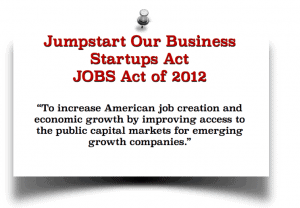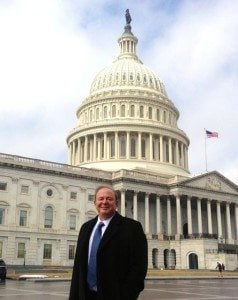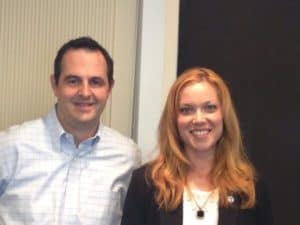 Several recent reports have noted the increase in attention law firms are paying to the crowdfunding space. The various sections of the JOBS Act, specifically Title II, Title III and Title IV, have perked interest by the legal industry as they see new opportunity to expand their business and target a new market. While only Title II of the JOBS Act is operational today (a portion of the bill that legalized general solicitation for certain private placements) the potential for retail crowdfunding in Title III and “Reg A Plus” in Title IV is not going unnoticed.
Several recent reports have noted the increase in attention law firms are paying to the crowdfunding space. The various sections of the JOBS Act, specifically Title II, Title III and Title IV, have perked interest by the legal industry as they see new opportunity to expand their business and target a new market. While only Title II of the JOBS Act is operational today (a portion of the bill that legalized general solicitation for certain private placements) the potential for retail crowdfunding in Title III and “Reg A Plus” in Title IV is not going unnoticed.
This past week the law firm of Goodwin Proctor announced a crowdfunding practice. Firm lead, Lewis Feldman has been a noted presenter on the crowdfunding circuit of late. In a report by Reuters, Feldman stated, “The bottom line for us is that we’re really able to counsel people as to when this is going to be an effective use of resources.”
 While news sources like Reuters may be only now picking up on this trend, several forward thinking lawyers have been established in the space since before – or just after – the signing of the JOBS Act.
While news sources like Reuters may be only now picking up on this trend, several forward thinking lawyers have been established in the space since before – or just after – the signing of the JOBS Act.
Doug Ellenof of Ellenoff, Grossman and Schole (EGS) has been one of the biggest proponents of the crowdfunding industry and has been involved with the industry before the crowdfunding bill was signed into law. EGS established their practice years ago.
 Sam Guzik, a Crowdfund Insider Senior Contributor and expert on the JOBS Act, has been championing the benefits of crowdfunding for small business since 2012. Guzik is now working with equity crowdfunding platform Crowdfunder – among others involved in the industry.
Sam Guzik, a Crowdfund Insider Senior Contributor and expert on the JOBS Act, has been championing the benefits of crowdfunding for small business since 2012. Guzik is now working with equity crowdfunding platform Crowdfunder – among others involved in the industry.
Also mentioned in the Reuters report was Georgia Quinn, another Senior Contributor at Crowdfund Insider, a Securities Attorney who is leading the charge at Chicago based Seyfarth Shaw. Quinn, based in New York City, was quoted by Reuters stating, “For small and local businesses, there is a real opportunity and [letting the public engage in crowdfunding] will definitely bring more work for lawyers, but it’s on a smaller scale,” said Georgia Quinn, the New York-based head of Seyfarth Shaw’s crowdfunding practice. “It’s  less attractive for big firms.” Seyfarth has also created an automated process for preparing legal documents called Disclosure Dragon – an application that will reduce costs for companies raising capital via equity crowdfunding.
less attractive for big firms.” Seyfarth has also created an automated process for preparing legal documents called Disclosure Dragon – an application that will reduce costs for companies raising capital via equity crowdfunding.
 Anthony Zeoli, another Crowdfund Insider contributor, is leading the charge in the state of Illinois to legalize intrastate investment crowdfunding – a movement that has gained momentum as final regulations have been delayed on the federal level.
Anthony Zeoli, another Crowdfund Insider contributor, is leading the charge in the state of Illinois to legalize intrastate investment crowdfunding – a movement that has gained momentum as final regulations have been delayed on the federal level.
As final rules are eventually released for both Title III and Title IV – expectations are that many more law firms will move into the space. While numbers are small on relative basis today – there is a growing understanding of the forthcoming disruptive shift to investment crowdfunding to raise capital.

